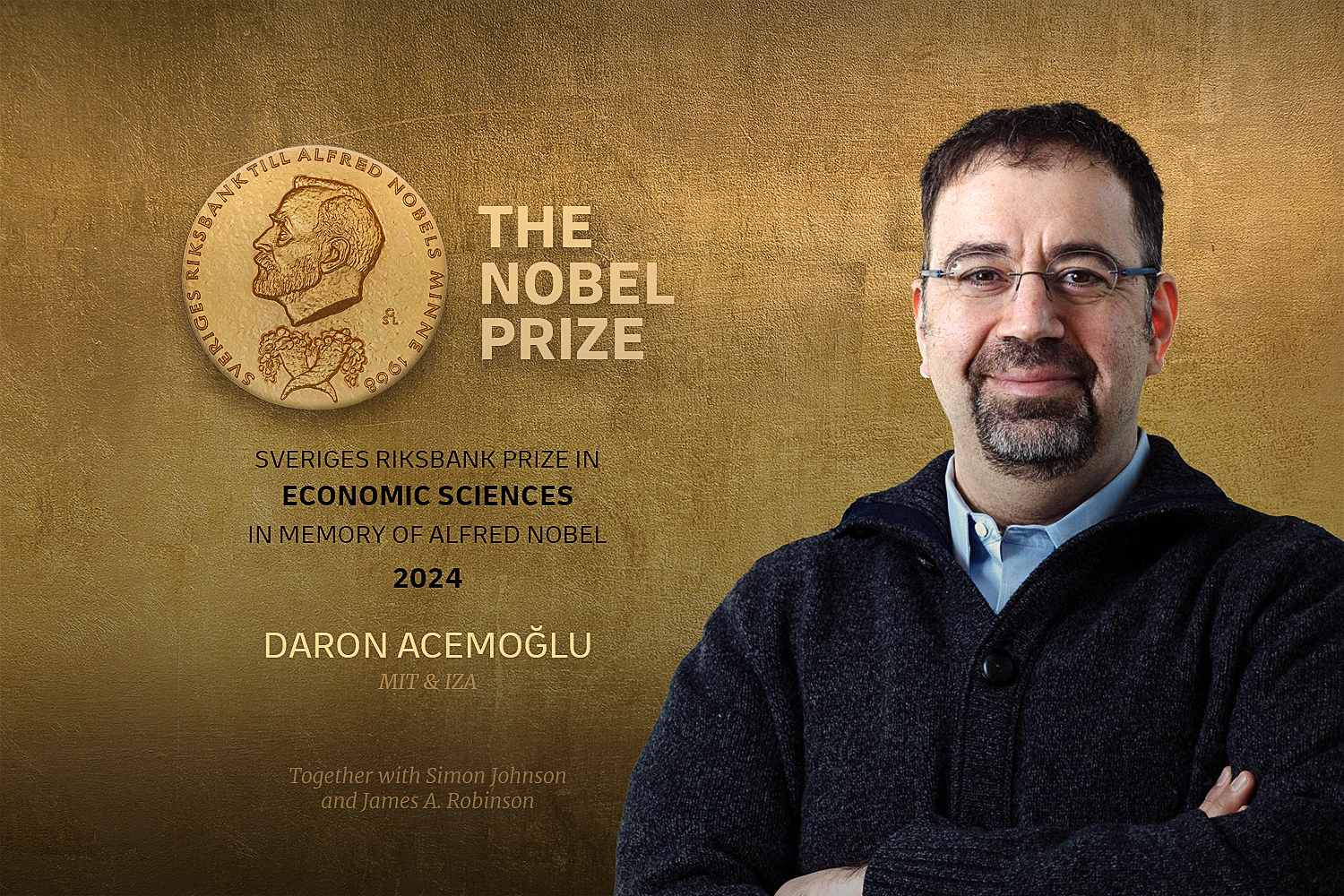We are thrilled to announce that IZA Research Fellow Daron Acemoglu (MIT) has been awarded the Sveriges Riksbank Prize in Economic Sciences in Memory of Alfred Nobel 2024 alongside his MIT colleague Simon Johnson and James A. Robinson (University of Chicago). Acemoglu is the fifth Nobel laureate from the IZA Network in the past four years alone, following in the footsteps of Claudia Goldin (2023) and Joshua Angrist, David Card and Guido Imbens (2021).
According to the Prize Committee’s press release, this year’s laureates have provided new insights into why there are such vast differences in prosperity between nations. One important explanation is persistent differences in societal institutions. By examining the various political and economic systems introduced by European colonizers, the Nobel laureates have been able to demonstrate a relationship between institutions and prosperity. They have also developed theoretical tools that can explain why differences in institutions persist and how institutions can change.
When Europeans colonized large parts of the globe, the institutions in those societies changed. This was sometimes dramatic, but did not occur in the same way everywhere. In some places the aim was to exploit the indigenous population and extract resources for the colonizers’ benefit. In others, the colonizers formed inclusive political and economic systems for the long-term benefit of European migrants.
The laureates have shown that one explanation for differences in countries’ prosperity is the societal institutions that were introduced during colonization. Inclusive institutions were often introduced in countries that were poor when they were colonized, over time resulting in a generally prosperous population. This is an important reason for why former colonies that were once rich are now poor, and vice versa.
Some countries become trapped in a situation with extractive institutions and low economic growth. The introduction of inclusive institutions would create long-term benefits for everyone, but extractive institutions provide short-term gains for the people in power. As long as the political system guarantees they will remain in control, no one will trust their promises of future economic reforms. According to the laureates, this is why no improvement occurs.
However, this inability to make credible promises of positive change can also explain why democratization sometimes occurs. When there is a threat of revolution, the people in power face a dilemma. They would prefer to remain in power and try to placate the masses by promising economic reforms, but the population are unlikely to believe that they will not return to the old system as soon as the situation settles down. In the end, the only option may be to transfer power and establish democracy.
“Reducing the vast differences in income between countries is one of our time’s greatest challenges. The laureates have demonstrated the importance of societal institutions for achieving this,” says Jakob Svensson, Chair of the Committee for the Prize in Economic Sciences.
